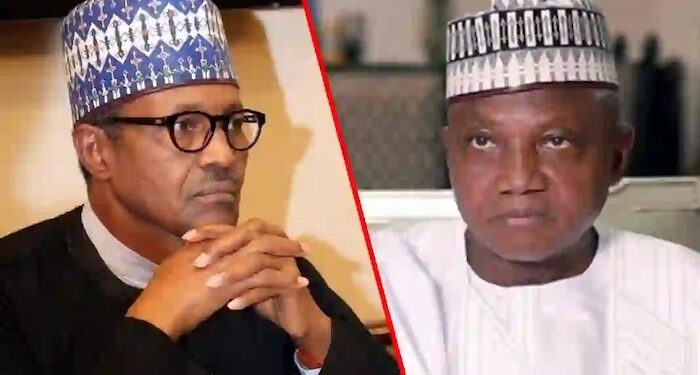Former presidential spokesperson Garba Shehu has revealed that ex-President Muhammadu Buhari rejected a proposed ₦10 million monthly food budget for the State House during his first year in office, emphasizing his austere lifestyle and insistence on fiscal discipline.
Shehu made the revelation in his newly launched memoir, “According to the President: Lessons from a Presidential Spokesperson’s Experience,” unveiled in Abuja on Tuesday. The book offers behind-the-scenes insights into Buhari’s eight-year tenure and details how he approached governance, budgeting, and public accountability.
According to Shehu, shortly after assuming office in 2015, Buhari was informed that the State House food budget—meant to cover the president, vice-president, guest houses, and official banquets—needed to be raised to ₦10 million.
“When they told him ₦10 million was needed, he screamed and demanded it be reduced,” Shehu recalled.
Buhari reportedly pointed to his simple meals and asked, “Look at my table, what do I eat? How much does it cost?”
Buhari’s Simple Lifestyle
Shehu described Buhari’s meals as modest and reflective of Nigeria’s lower-income population.
“He mostly ate tuwo, pap, akara, beans, wheat, salads, poultry, and mutton. His diet was healthy and basic,” Shehu wrote.
This no-frills lifestyle extended beyond food. Shehu revealed that Buhari also rejected the purchase of five new customized Mercedes-Benz vehicles worth ₦400 million, which had been approved during the final days of the Jonathan administration.
“He asked, ‘What is wrong with the cars left behind by the former president?’ and continued using them until one broke down on the way to the airport,” Shehu noted.
Buhari reportedly instructed the Permanent Secretary of the State House, Nebolisa Emodi, to slash operational costs and abolish reliance on Presidential Intervention Funds, insisting that all State House expenses remain within budget.
Delay in Ministerial Appointments Explained
Shehu also addressed one of the early criticisms of Buhari’s presidency—the delay in appointing ministers. He said Buhari chose to spend his initial months consulting with permanent secretaries and agency heads to grasp the nation’s challenges before assembling a cabinet.
Buhari’s Control Over Public Funds
One of the more striking anecdotes in the book involves Buhari’s absence during a medical trip abroad, when then Vice President Yemi Osinbajo served as acting president. Shehu recounted that some officials (not Osinbajo) approached the late Chief of Staff, Abba Kyari, seeking access to a security vote.
“Malam Abba told them the president kept nothing to that effect,” Shehu wrote, underscoring Buhari’s tight financial controls and transparency.


